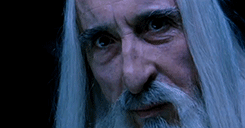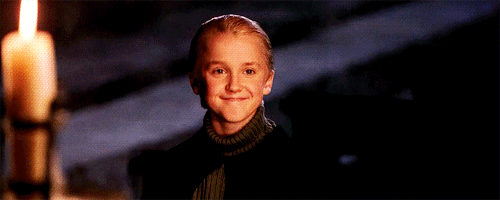Recent events – some personal, some not – have brought
beginnings and endings to the forefront of my thoughts. I’ve decided to address
them, and shine a light on how they affect writing.
These two simple words carry heavy burdens. Perhaps most
especially they bring with them toils and strife in literature. Not just for
the author, but for the characters, for the plot, and for the reader. Without a
beginning, there is no story. Without an ending, nothing can terminate in a
satisfactory way, thus boring readers with an infinitely long book*.
If there is no beginning, why are you writing the story in
the first place? If there is no end, how do you intend to finish?
Let us first look at beginnings.
In short, the first four pages of a novel [or any other form
of writing] are the most important pages in the entire manuscript. Even if the
black moments of chapters twenty and seventy-nine will be the ones to bring
your readers to tears, it’s the beginning that draws your reader to those
chapters in the first place. Most editors, agents, and publishers will buy or
trash a story within the first four pages.
That might not be fair; maybe page six is the most
wonderfully written page of prose and emotion since Leo Tolstoy penned the
second chapter of part fourteen of War
and Peace. However, if you don’t have that same depth and emotion on page one, they’ll never get to page six.
Every story worth telling starts at the beginning1.
It is, after all, “a very good place to start”. This inciting moment compels
the reader forward in a journey, whether metaphorically or literally. If the
reader picks up a book, they’ve come with questions: What is this story about?
Why should I read it? Will it bore me? Am I willing to invest my time and
emotions into this work? Is it a genre I like? Who is the main character? What
type of prose does the author use? Will it make me laugh or cry? Can it do
both? Will I be satisfied by this story? Is it easy to read, or does it require
more thought and contemplation?
That’s a lot of questions, isn’t it? Your average reader won’t
consciously ask each of these
questions, but when they pick up a book – your
book – they’ll expect answers to most of these questions within the first
chapter, if not the first few pages. They’ll judge your book by what they first
read. That’s often why books with professional-looking covers (or those with
well-loved looks from hundreds of readings) are read widely. Sure, the proverb
states we shouldn’t judge books by their covers, but most everyone does.
And if someone chooses your book, they want whatever is
inside to far outdo the outside.
A good beginning does not, however, truly begin the story.
For example:
“He was an old man who
fished alone in a skiff in the Gulf Stream and he had gone eighty-four days now
without taking a fish.”
You probably recognize this line, even if you haven’t read
the book to which it belongs. Ernest Hemingway knew how to start a story. While
his story The Old Man and the Sea may
bore a lot of readers due to its simplicity, this first sentence is an
excellent example of a beginning that simply picks up the story at its most
important part. The story could have
started eight-five days prior, when the old man caught his last fish. It then
could proceed to show us the agony of eighty-four days without even a single
nibble.
It might be agony for the old man, and it would certainly be
agony for the reader. We don’t want to sit around for eighty-four days while
nothing happens. We do, however, want to be there on the eighty-fifth day, when
the greatest fish the old man has even seen catches the bait.
A good beginning chooses the right moment to begin, even if
the story starts earlier. A moment too soon, and you might bore us before you
even begin.2
Endings are just as necessary as beginnings. In the words of
the Doctor:
Just because we don’t like them (medical staff mentioned
above included) doesn’t mean they aren’t important.
The ending of every piece of writing should satisfy the
reader. It should make us feel like that was the best possible moment to end
it. There should be no feeling of ‘they should’ve ended it sooner’ or ‘augh I
hate that ending, so much feels unfinished’.
At the same time, however, the reader should feel the need
to turn the page, just to check and make sure that really was the end. We
should become so engrossed in the story that we don’t want it to end, even if
it’s the perfect end. If you get us hanging on your ever word, hoping and
begging it won’t be the last, you’ve done your job.
One particular type of bad ending is what I call the Sequel
Setup (considering what the acronym would be, I also call it the gestapo). This
is when an author has another book or two or twelve planned, and so they purposefully
give the reader a cliffhanger.
This isn’t so bad when you and I (the readers) can put down
the book and walk away, with no compulsion to read the next one just to find
out what happens next. A good example of a well-written cliffhanger-style
ending is Robert Jordan’s The Wheel of
Time series. Each book sets up the next one with a little bit of a
cliffhanger, but you don’t feel like you have
to keep reading.
However, when nothing feels like it resolved, the reader can
(and will) get frustrated with the author. Even if the main goal isn’t
fulfilled, even if the Dark Lord Couch Potato still reigns as immortal king of
Couchkind, we want to feel some sense of conclusion. Something needs to
resolve. Ending the book with Lord Couch Potato preparing to smash the main
character under his pudgy thumb isn’t satisfying.
A good ending satisfies the reader. It leaves them content
with the story, but begging for one. More. Word.
*as I typed this, I realized how fascinating that would be… a
book that has no ending, and an infinite number of pages. I wonder how that
would be stored…
1there are, of course, those stories that start with a
flash forward, but with those, I would say they simply start at chapter two,
the beginning, and chapter one is just in the wrong place.
2one way to start too soon is with a prologue. Next week
I’ll discuss these special little beginnings, and their counterparts, the
epilogue




